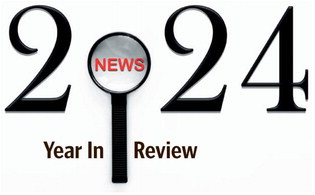Public Records Lawsuit Set For Oral Arguments
The Montana Supreme Court will hear oral arguments on a lawsuit over whether Gov. Greg Gianforte can claim “executive privilege” to withhold from the public internal records his office uses to track legislation.
Oral arguments are scheduled for Friday, Sept. 13, in the lawsuit filed in Lewis and Clark County District Court.
An introduction to the case will start at 9 a.m. and arguments will begin at 9:30 a.m.
All justices will hear the case.
In 2021, plaintiff Jayson O’Neill sued Gianforte, a Republican, after the Governor’s Office denied O’Neill’s request to see forms it uses to track legislation — O’Neill requested but did not receive even a blank form.
Gianforte said the records should be private to allow frank internal conversations. He argued they fell under “attorney-client privilege.” In 2022, District Court Judge Kathy Seeley ordered Gianforte to turn over the records to the court for review and possible release. Seeley said the state of Montana doesn’t recognize any form of “executive privilege.”
Seeley also said the Montana Constitution protects the public’s right to know, and most of the legal authority the governor cited to support “executive privilege” was from other jurisdictions, including the common law of England.
The state’s briefing to the Supreme Court, however, said the court has recognized exceptions to the right to know, but O’Neill applies an “absolutist” position.
The state argued the governor receives candid advice about whether he should sign or veto legislation, those conversations are “to the public benefit,” and other courts have granted them some confidentiality.
The governor also argues that judges deliberate in secret, Montana courts are granted privacy, and the executive branch should be afforded the same protection.
O’Neill disagreed. His briefing to the Supreme Court said the state has changed its arguments along the way about why it’s withholding the records.
It also described the state’s claim to “executive privilege” as both “novel” and “foreign,” having never been used to fight the right to know, and contravening the Montana Constitution.
“Executive and deliberative process privilege presume that powerful officials need to be shielded from public scrutiny to function well,” said the court filing. “But our Constitution strenuously rejects such presumptions in favor of transparency and public accountability … “If executive privilege is created now, its abuse is certain.”
O’Neill is represented by the Graybill Law Firm and Upper Seven Law.
In the District Court order, the judge rejected the idea that keeping the governor’s documents a secret “serves the public interest.”
However, the judge ordered the governor to provide the documents to the court so it could review them and determine whether any were covered by attorney-client privilege.
Gianforte did not turn them over, and the state appealed to the Supreme Court.


